Hanoi, September 10 - In response to the International Day of Clean Air for Blue Skies (September 7) and the International Day for the Preservation of the Ozone Layer (September 16), the Green Future Fund, in collaboration with the Ministry of Agriculture and Environment, organized a seminar titled “Joining Hands to Protect the Blue Sky - Challenges and Solutions.”
The event brought together international experts, scientists, policymakers, businesses, and students to discuss solutions for air pollution control while promoting Vietnam’s Net Zero 2050 target, amid alarming air quality levels in the country.
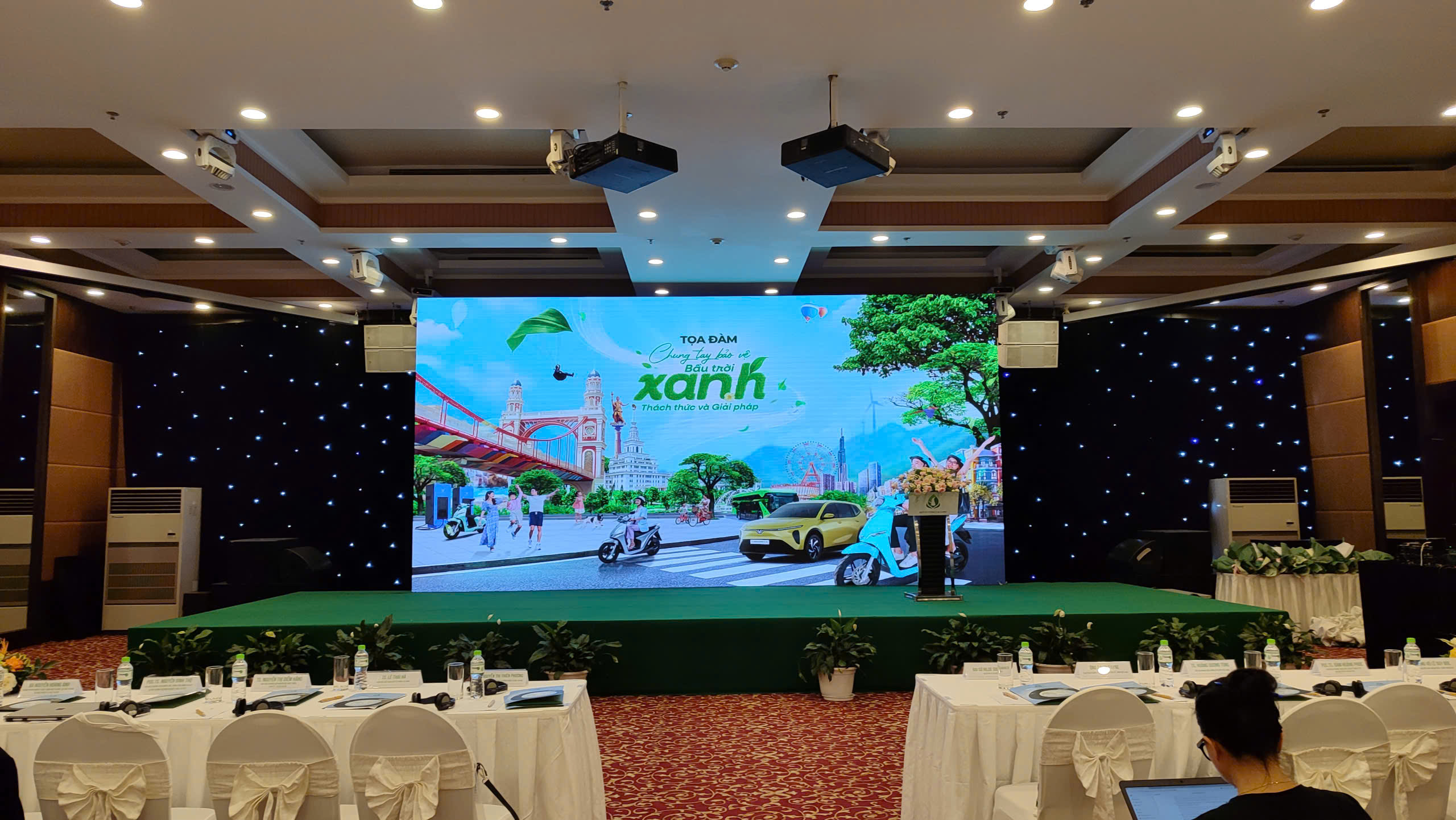
According to IQAir data, air pollution in Vietnam is currently 5.7 times higher than the WHO’s recommended limits, ranking 36th out of 177 countries globally and second in ASEAN. Pollution has caused over 8 million deaths worldwide each year. Fine particulate matter (PM2.5) is the most dangerous pollutant, posing significant risks to children and the elderly.
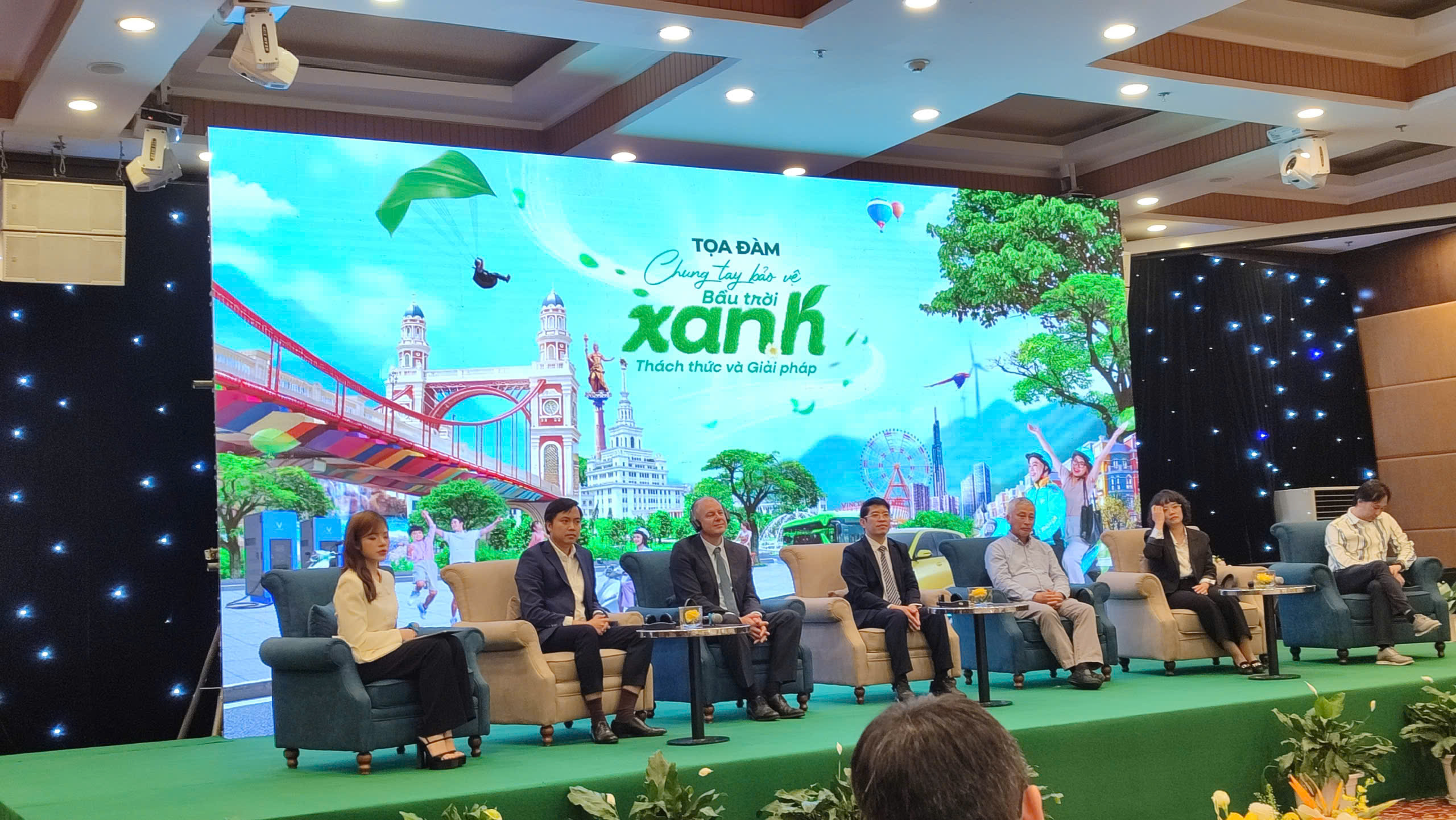
At the seminar, Mr. David Payne from UNDP Vietnam emphasized that advanced technologies, such as real-time pollution monitoring dashboards, can help forecast and respond quickly, but “technology alone cannot solve the problem.” He highlighted the need to mobilize communities and leverage social media to turn awareness into action.
From a policy perspective, Associate Professor Dr. Nguyen Dinh Tho, Deputy Director of the Institute of Strategy and Policy on Agriculture and Environment (Ministry of Agriculture & Environment), affirmed: “All solutions must be based on the polluter-pays principle and operate within a market-based mechanism.”
In the transportation sector, Associate Professor Dr. Dam Hoang Phuc, Director of the Automotive Engineering Training Program at Hanoi University of Science and Technology, identified three key bottlenecks in the green transition, summarized as the 3Cs: Cost – Infrastructure – Policy. He argued that overcoming these requires a coordinated combination of political commitment, science-led guidance, and social consensus. He also emphasized that scientists’ roles go beyond technological research to include spreading knowledge and promoting sustainable behavior in the community.
From the societal perspective, Dr. Nguyen Thu Nga, Secretary of the Youth Union at Thuy Loi University, noted that students and the younger generation need to be connected with policy, academic, and social resources domestically and internationally, contributing to positive change. This view was widely supported by other speakers at the event.
Concluding the seminar, experts shared a unified message: Vietnam can only control air pollution and achieve the Net Zero 2050 target when policy, technology, finance, and community action are tightly integrated, working together for a clean and blue sky.
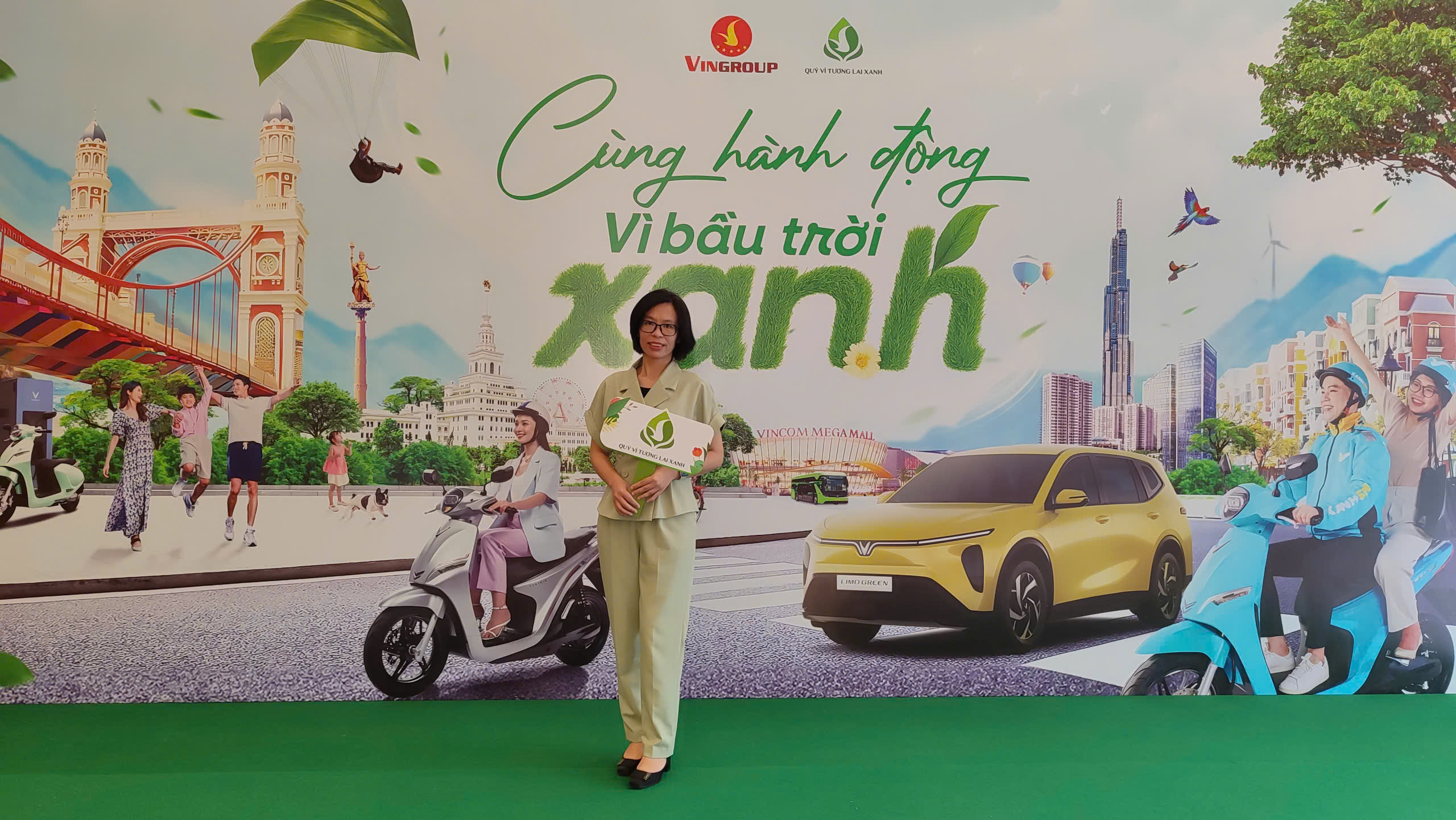
The seminar featured participation from MSc. Nguyen Thi Minh Hue, Project Director at KLINOVA, reflecting the company’s strong commitment to addressing air pollution and advancing the country’s green transition solutions.
- Minh Khuê -
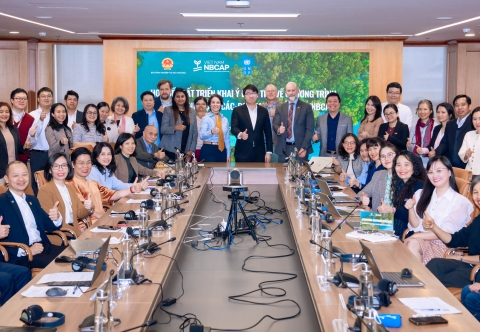 Meeting to propose the implementation of the Letter of Intent for the National Green Carbon Action Partnership Program (NBCAP)
Meeting to propose the implementation of the Letter of Intent for the National Green Carbon Action Partnership Program (NBCAP)
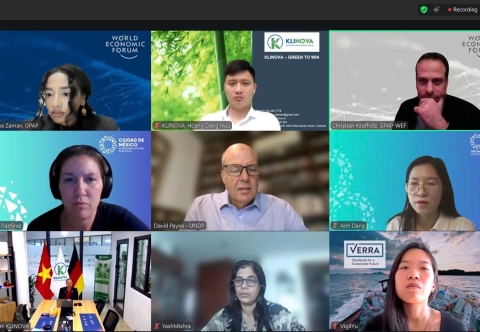 Online Workshop on the Financing Roadmap for Plastic Action to 2030: Mobilizing USD 8.5 Billion for Viet Nam’s Circular Economy
Online Workshop on the Financing Roadmap for Plastic Action to 2030: Mobilizing USD 8.5 Billion for Viet Nam’s Circular Economy